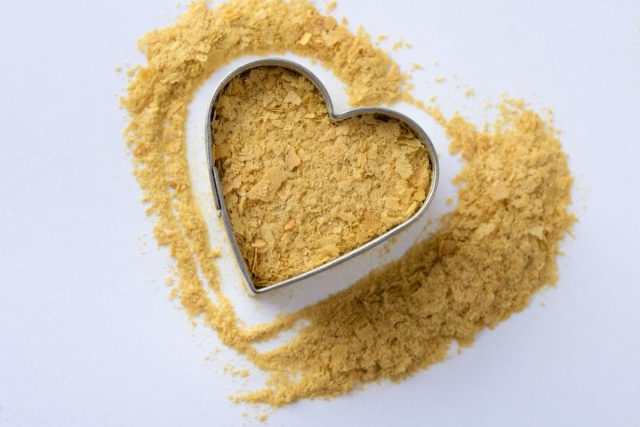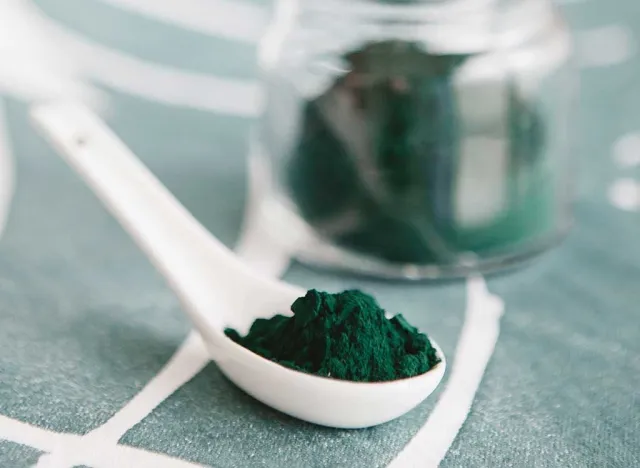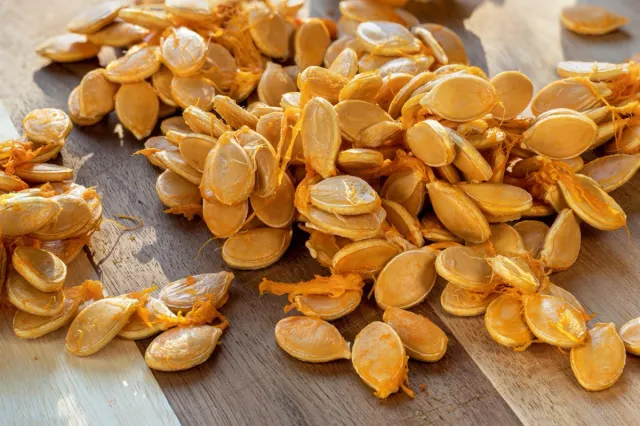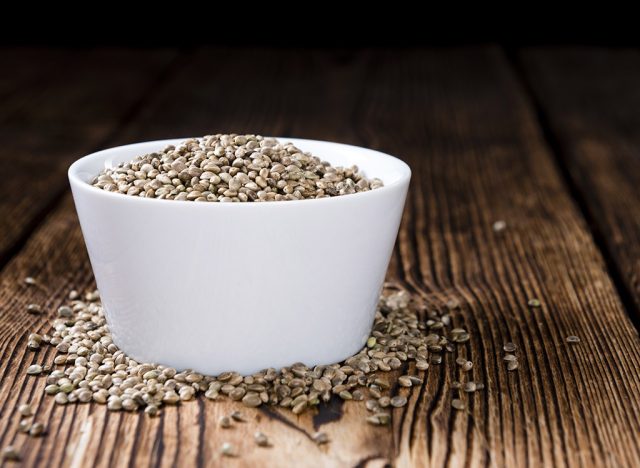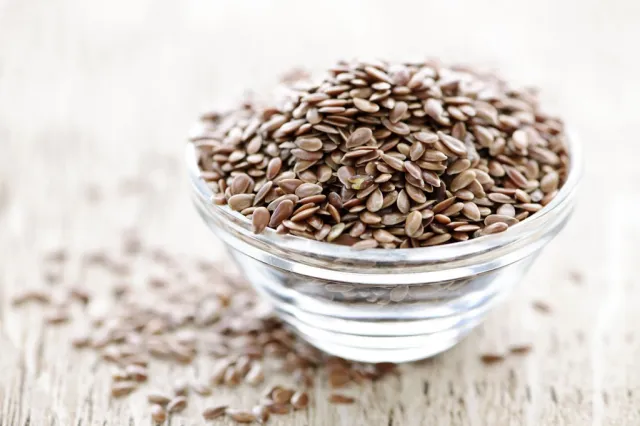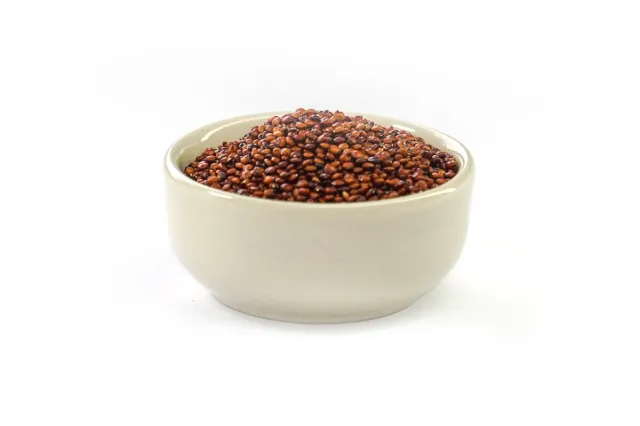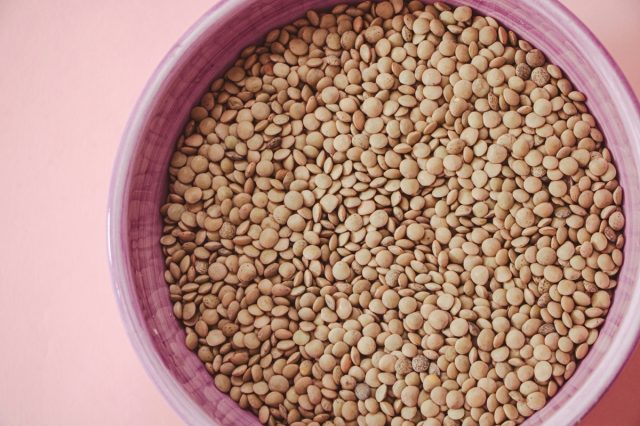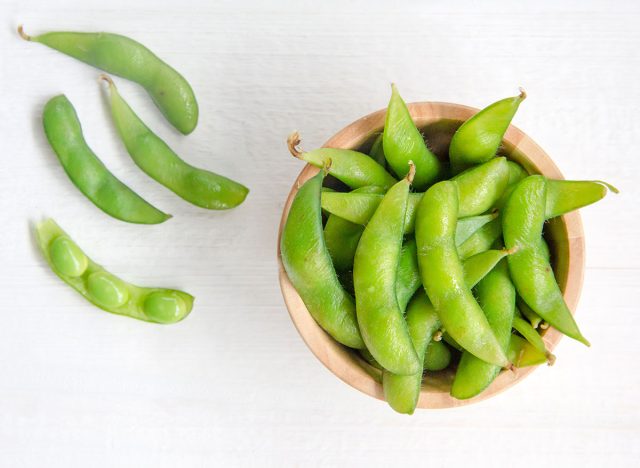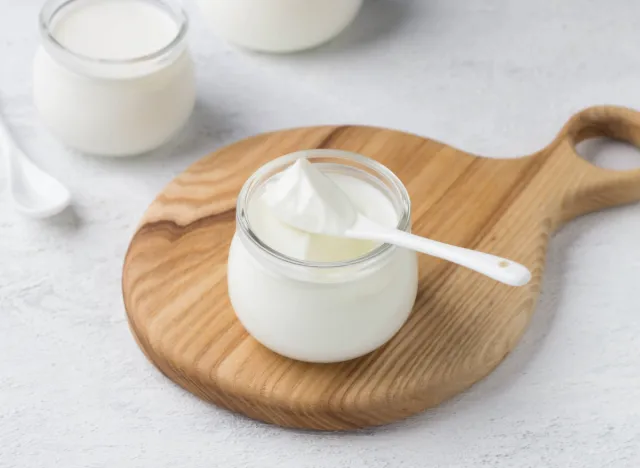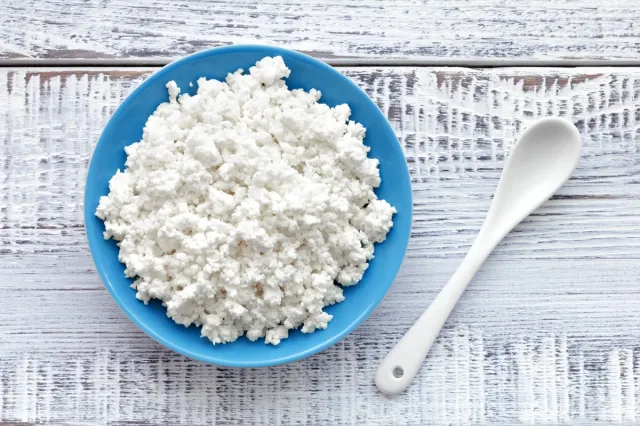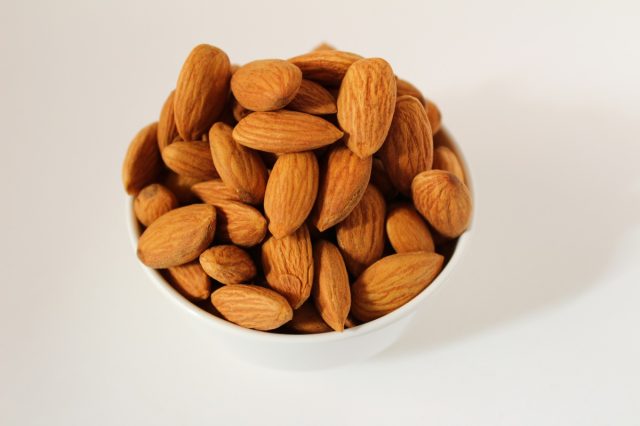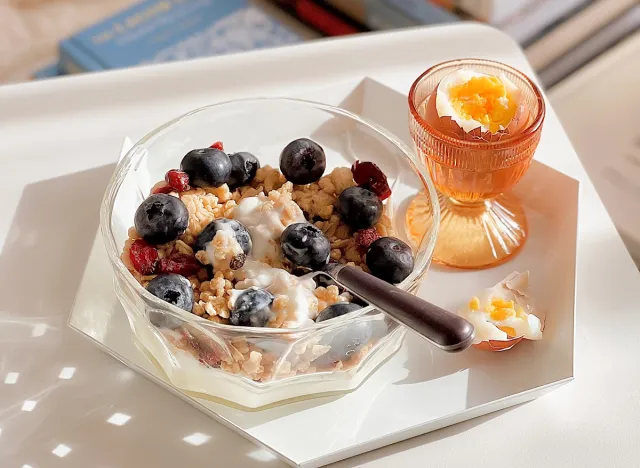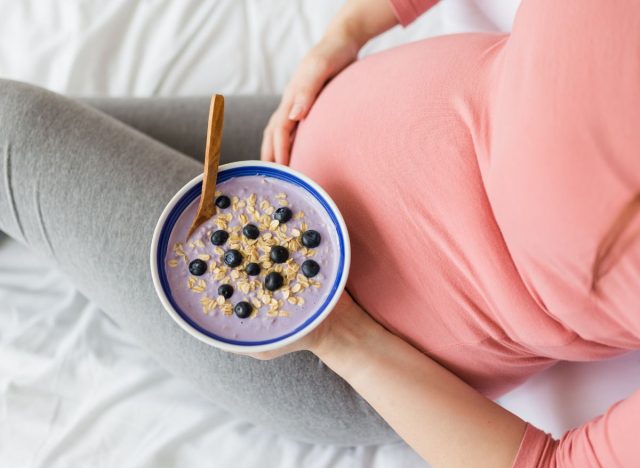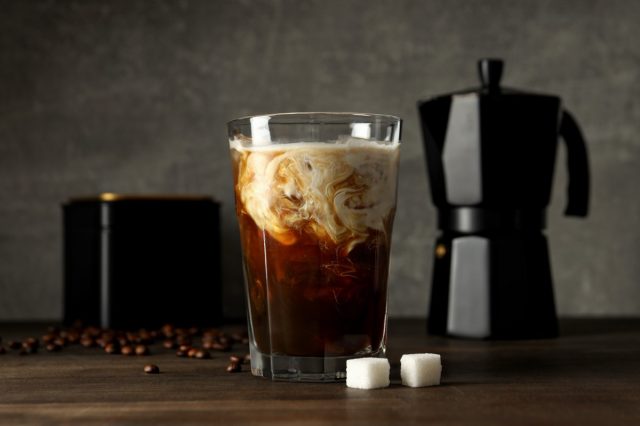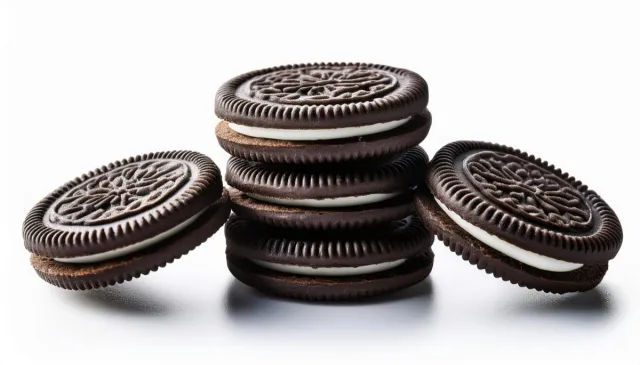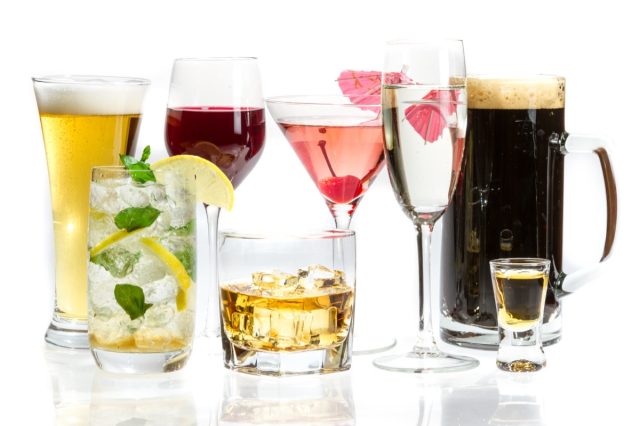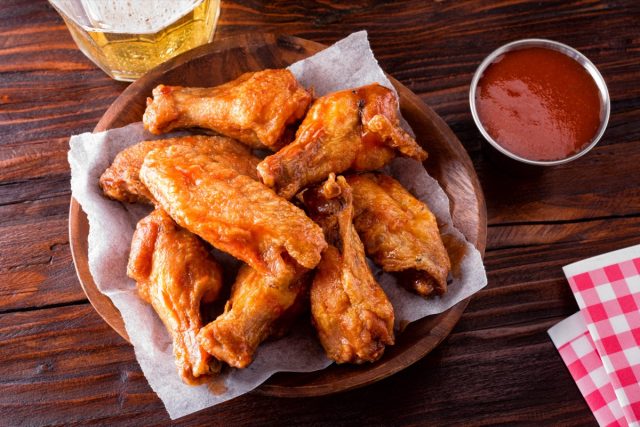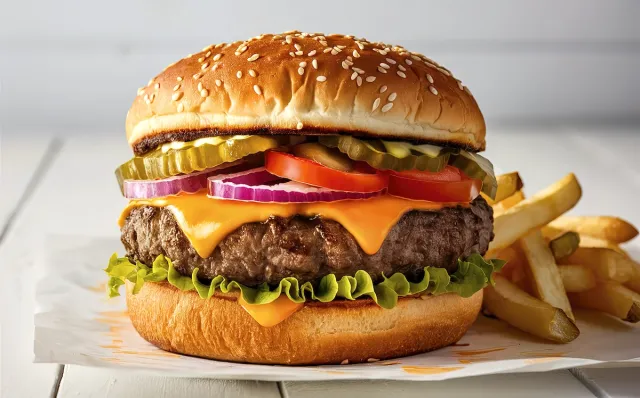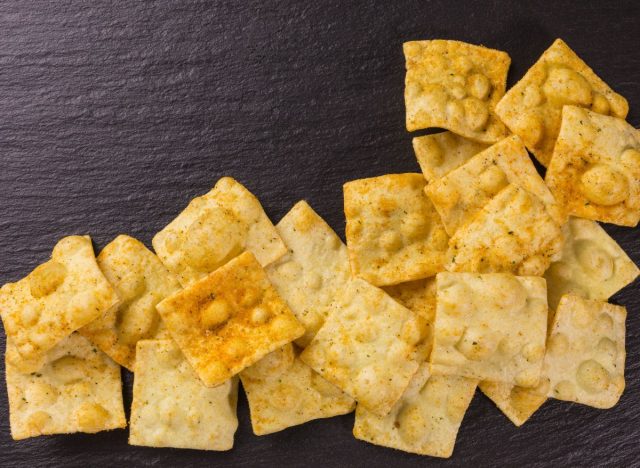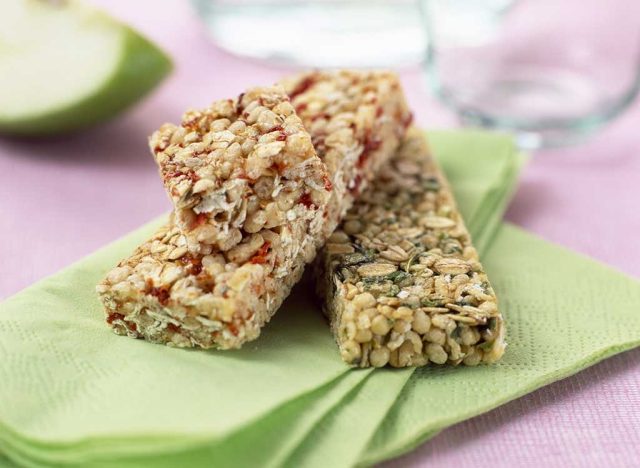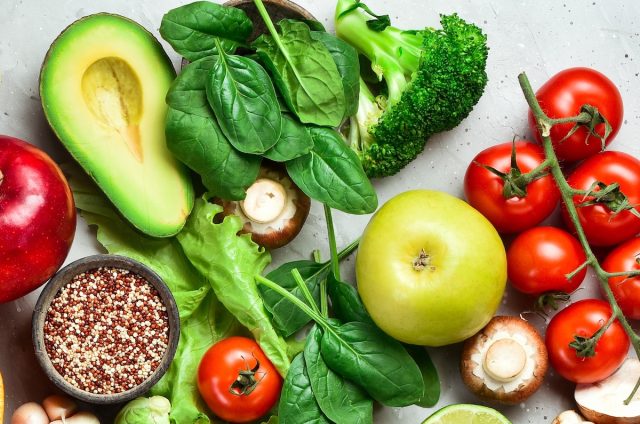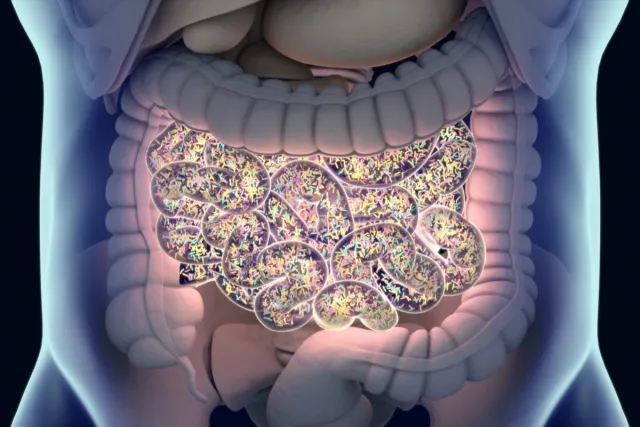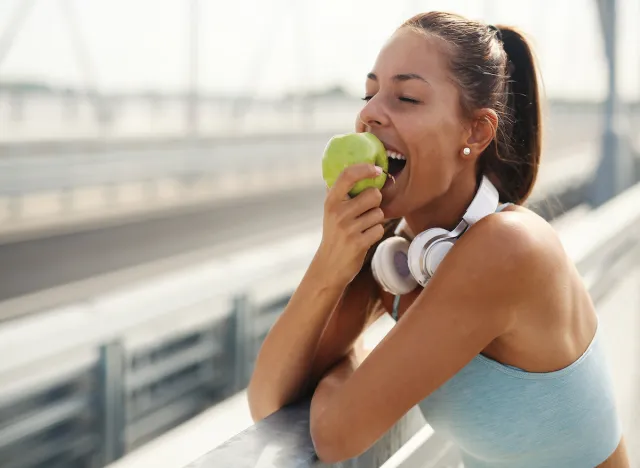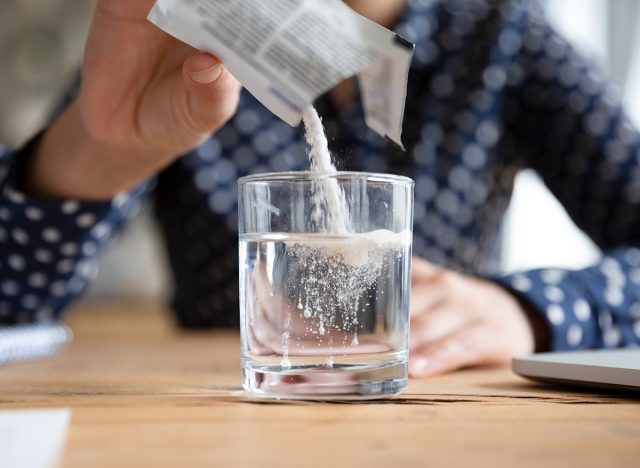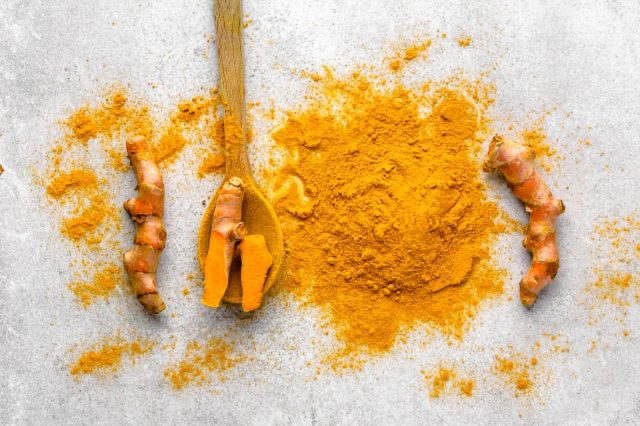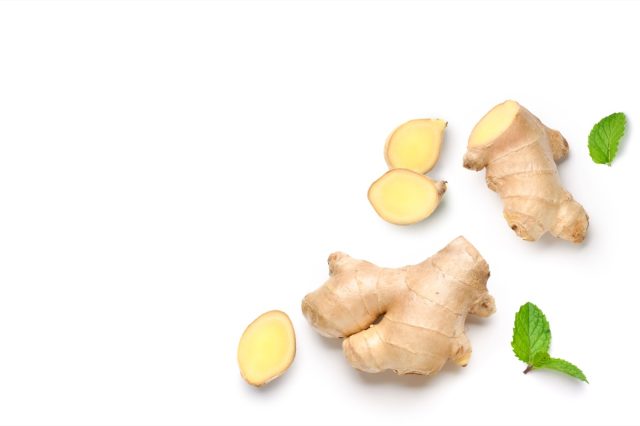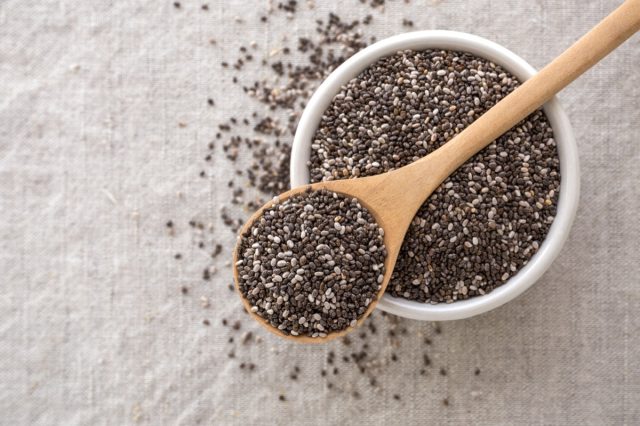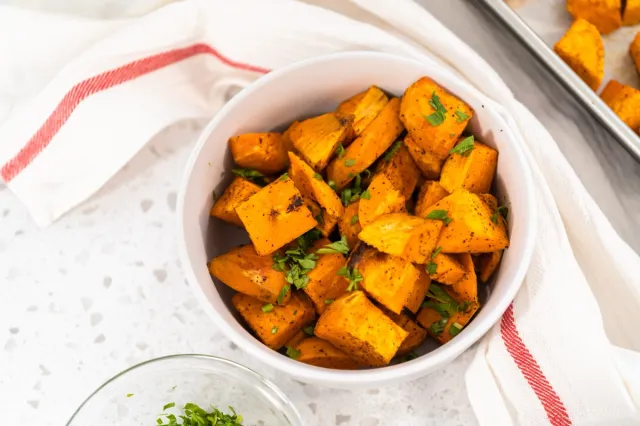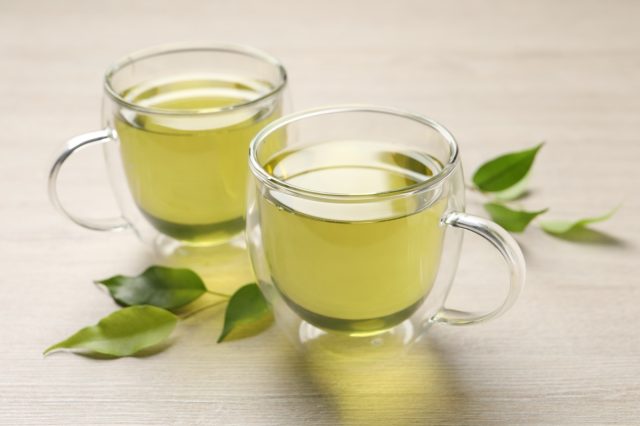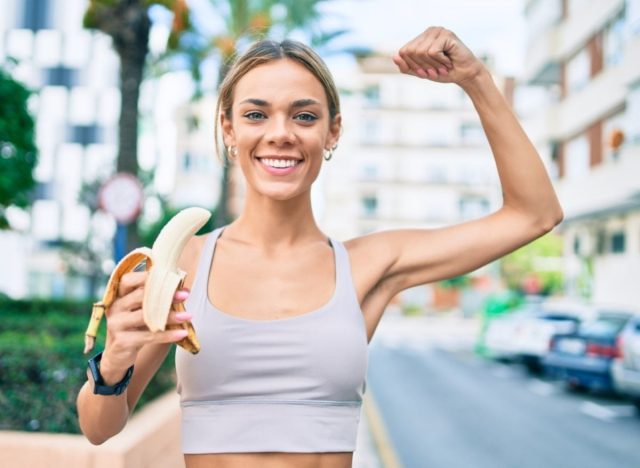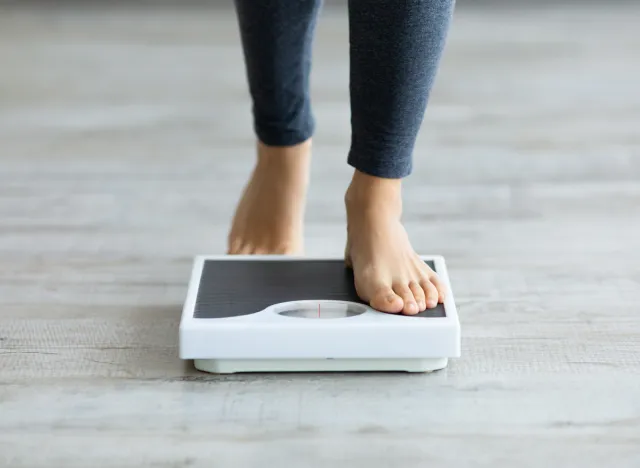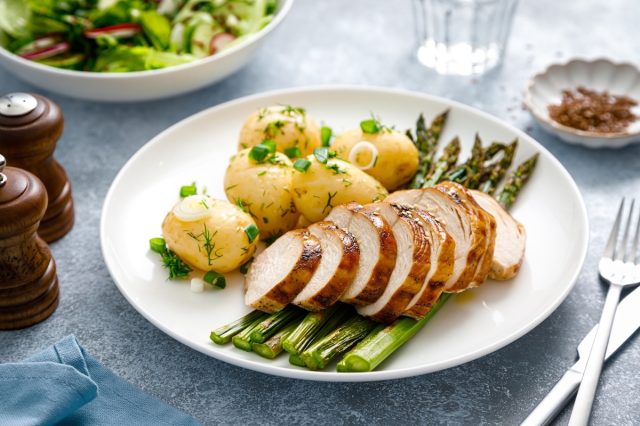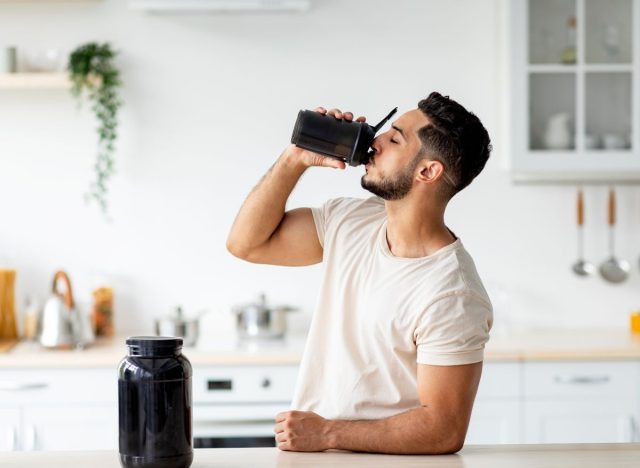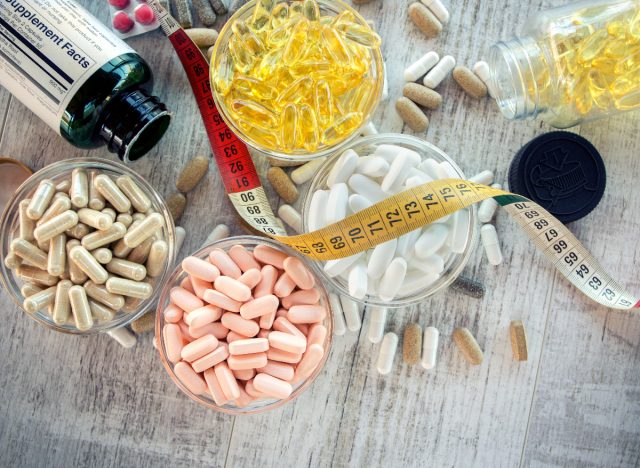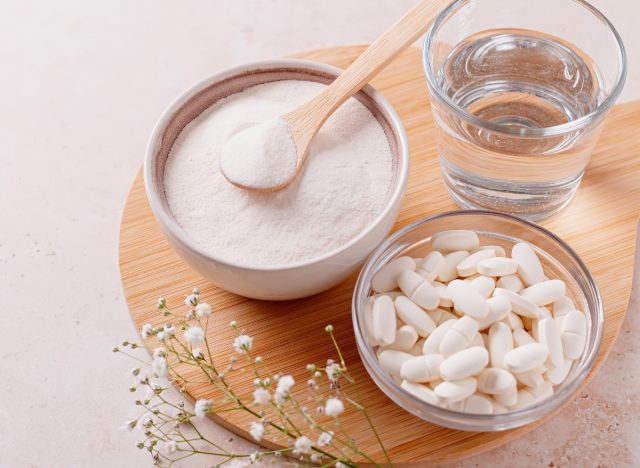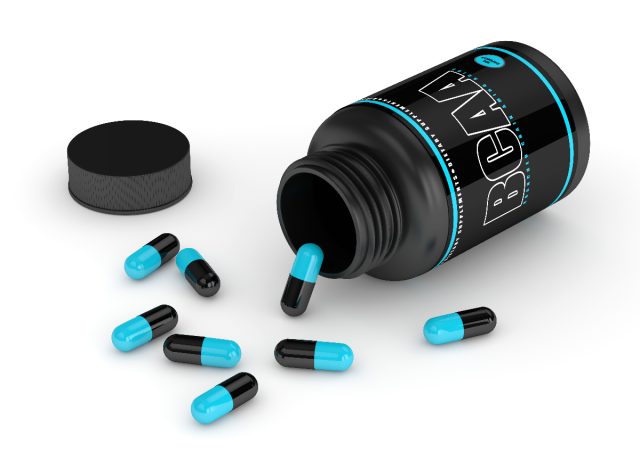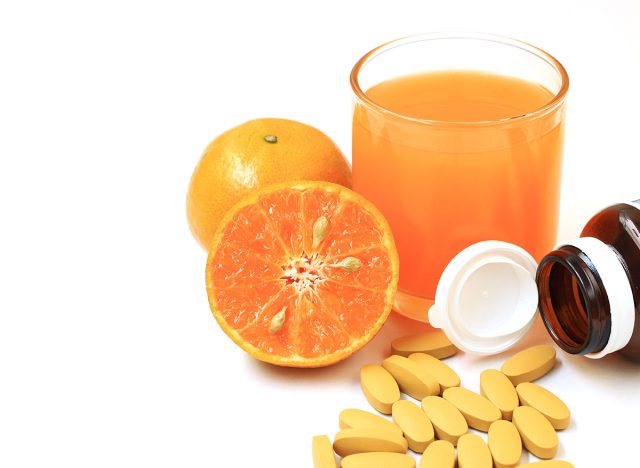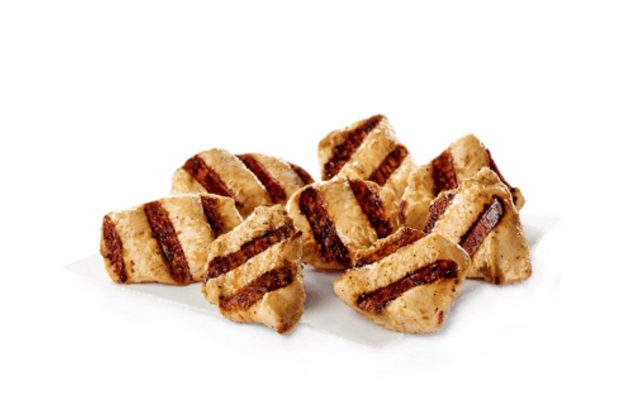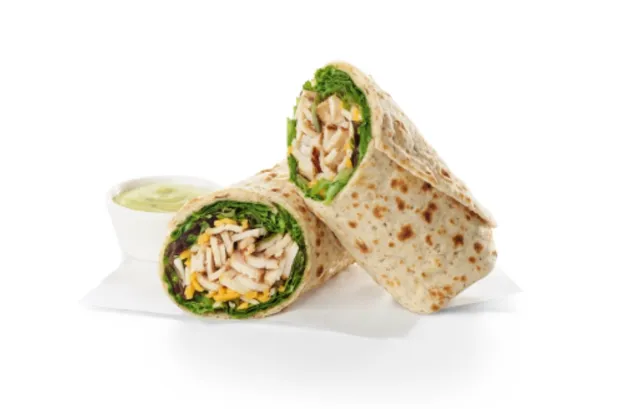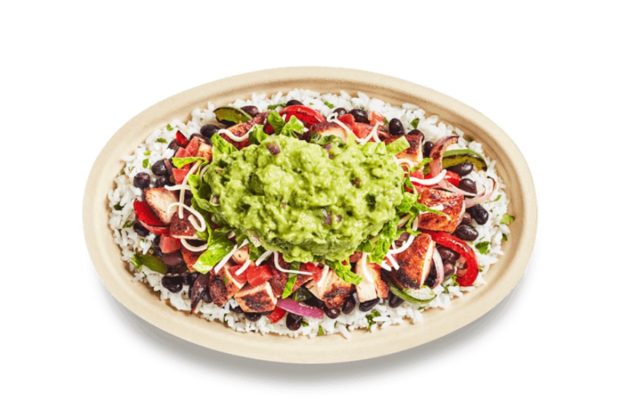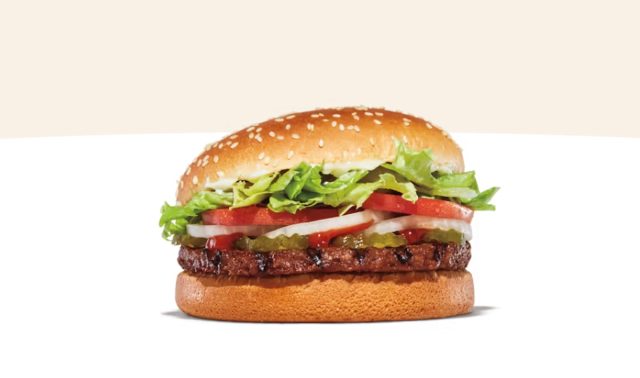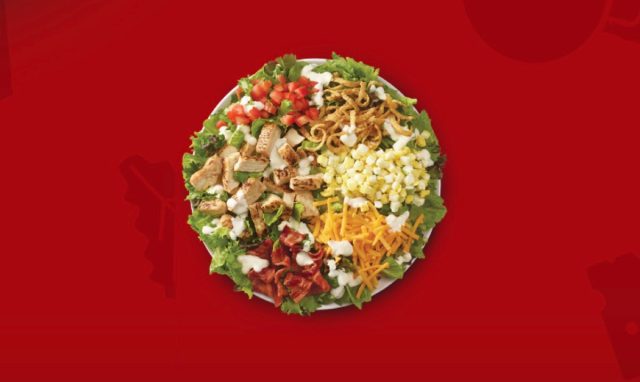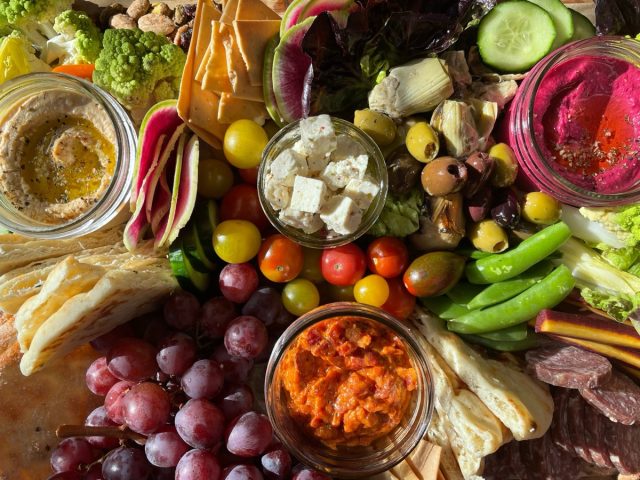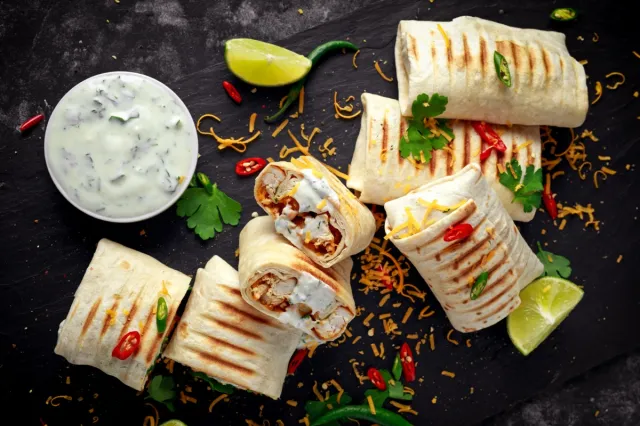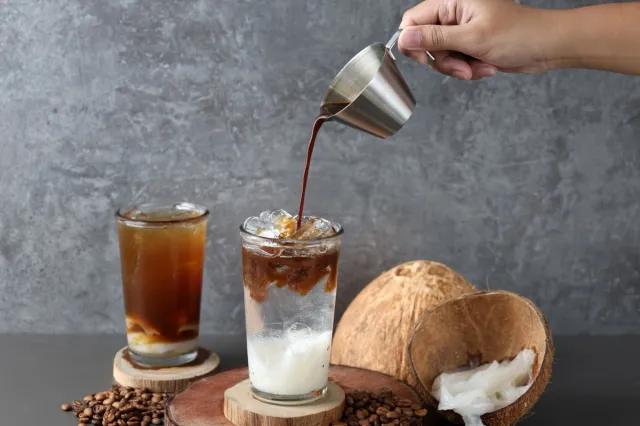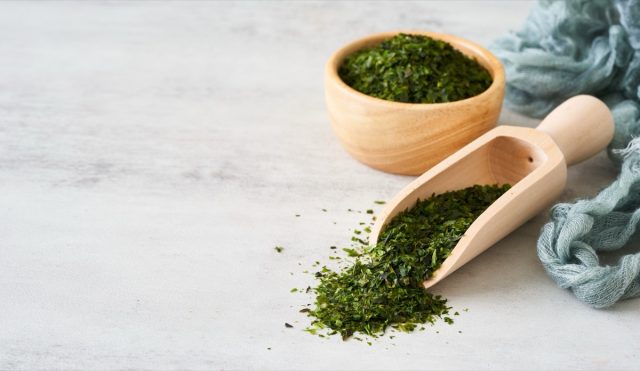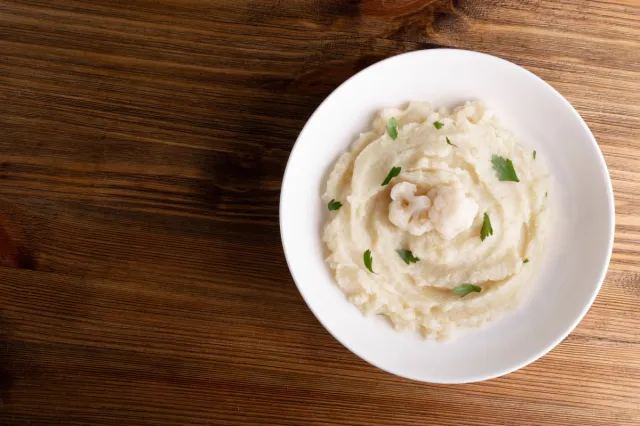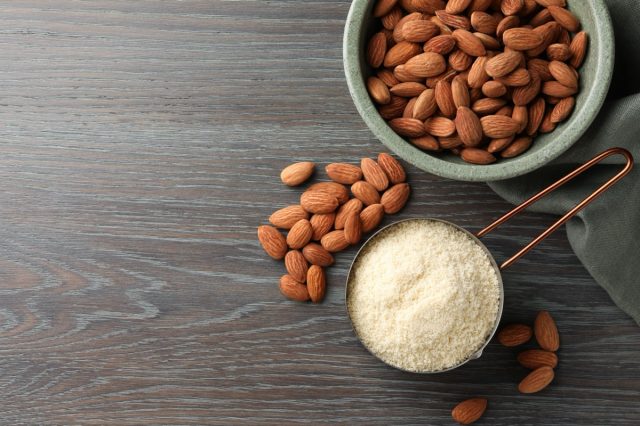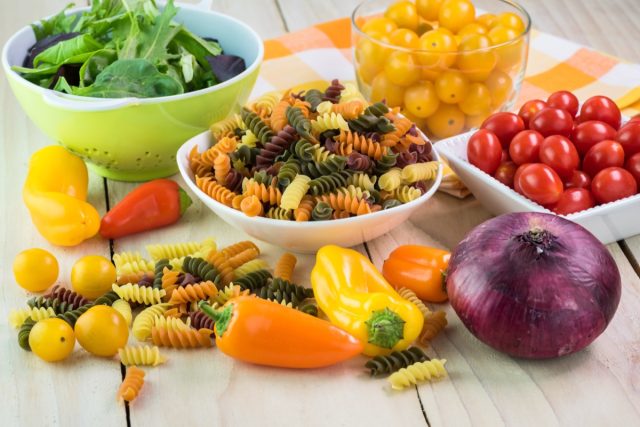| When it comes to snacking, many people think you have to choose between eating healthy and eating something that tastes good. But thankfully, snacks can be both delicious and filling, as long as you know what to look for. And if you're on the hunt for a tasty snack that is actually going to fill you up and satisfy cravings, choosing a high-protein snack is crucial.
How protein can help keep you full
Protein is necessary for keeping you full and satiated, so it's important to find snacks that have plenty of this nutrient. For one, protein has a slower digestion time, and it takes your body a longer period of time to process it than carbs or fat. Protein also has an impact on certain hormones that regulate hunger and appetite. All of these reasons make protein one of the most important nutrients to eat when you're trying to feel satisfied after eating.
15 High-Protein Snacks to Buy
Whisps Baked Cheese
Nutrition (Per 1-ounce serving):
Calories: 170
Fat: 14 g (Saturated Fat: 10 g)
Sodium: 330 mg
Carbs: 1 g (Fiber: 0 g, Sugar: 0 g)
Protein: 10 g
Whisps Cheese Crisps are the perfect snack for people on a Keto diet or just needing something lower in carbohydrates. Made with 100% real cheese and containing 10 grams of protein, this snack is a great high-protein choice.
Icelandic Provisions Skyr
Nutrition (Per 1-ounce serving):
Calories: 120
Fat: 2.5 g (Saturated Fat: 1.5 g)
Sodium: 55 mg
Carbs: 8 g (Fiber: 0 g, Sugar: 3 g)
Protein: 17 g
Icelandic Skyr is a type of yogurt that is usually higher in protein and lower in sugar than other varieties. It's often compared to Greek yogurt for these reasons. We love the brand Icelandic Provisions, and their Plain Skyr is a super healthy snack for a mid-day protein boost.
Fulfil Chocolate Salted Caramel Protein Bar
Nutrition (Per 1-ounce serving):
Calories: 160
Fat: 6 g (Saturated Fat: 5 g)
Sodium: 200 mg
Carbs: 14 g (Fiber: 1 g, Sugar: 1 g)
Protein: 15 g
Protein bars are oftentimes chalky and unenjoyable to eat, so finding some that actually taste good is important for ensuring that you enjoy your snack. These protein bars from Fulfil not only provide 15 grams of filling protein for only 160 calories, but they also taste delicious.
Quest Lime Tortilla Chips
Nutrition (Per bag):
Calories: 140
Fat: 4.5 g (Saturated Fat: 1 g)
Sodium: 320 mg
Carbs: 4 g (Fiber: 1 g, Sugar: Медиа: | ↑ |
Do you want to amp up your protein intake while reaping several other nutritional benefits? Some superfoods are shockingly high in protein, which can help you easily achieve your dietary goals. We asked Board-Certified Sports Dietitian Tara Collingwood, MS, RDN, CSSD, LD/N, ACSM-CPT, also known as The Diet Diva, and co-author of Flat Belly Cookbook for Dummies, to recommend 11 superfoods that are shockingly high in protein you should add to your diet now. Nutritional Yeast
Nutritional yeast is the first item on her list. "Has a cheesy flavor and is loaded with B12 (especially fortified versions)," says Collingwood. Protein: ~8g per 2 tablespoons Spirulina
Another superfood, surprisingly packed with protein? Spirulina. "A blue-green algae that's 60–70% protein by dry weight," Collingwood says. She adds that is also rich in B vitamins and iron. Protein: ~4g per tablespoon [slietitle num="3"]Pumpkin Seeds[/slidetitle]
Pumpkin seeds are a great snack to amp up protein intake. "Also high in magnesium, zinc, and healthy fats," says Collingwood. Protein: ~7g per ounce Hemp Seeds
She also recommends hemp seeds. The superfood is a "complete protein source with omega-3 and omega-6 fatty acids," she says. Protein: ~10g per 3 tablespoons Chia Seeds
Chia seeds, which you can drink or use to make pudding, are another protein-packed superfood. "Also an excellent source of fiber and omega-3s," she tells us. Protein: ~5g per ounce Quinoa
Quinoa is an excellent grain rich in protein. "A complete plant-based protein with all nine essential amino acids," she says. Protein: ~8g per cooked cup Lentils
Lentils are an excellent legume for many reasons, including their high protein content. "Rich in iron, folate, and fiber — a vegetarian staple," she says. Protein: ~18g per cooked cup Edamame
Edamame, a Japanese restaurant favorite, is also surprisingly high in protein. "Young soybeans are also high in fiber, iron, and calcium," Collingwood reveals. Protein: ~17g per cooked cup Greek Yogurt
Greek Yogurt (plain, nonfat) is another superfood, per Collingwood. "Lower in sugar and high in calcium and probiotics," she says. Protein: ~20g per 7-ounce container Cottage Cheese
Cottage cheese is an excellent source of protein with other nutritional benefits. "Also provides calcium, selenium, and vitamin B12," Collingwood states. Protein: ~14g per 1/2 cup Almonds
Last on her list? Almonds. What makes the nut a superfood? "Also packed with healthy fats, vitamin E, and magnesium," says Collingwood. Protein: ~6g per ounce (23 almonds) The post 11 Superfoods That Are Shockingly High in Protein appeared first on Eat This Not That. Медиа: | ↑ |
These days everyone is talking about getting enough protein. There are tons of people on social media documenting their quest to hit their protein goals and touting the benefits of eating more protein. But what are the actual signs that you're not getting enough of this macronutrient? Amy Goodson MS, RD, LD, CSSD, a registered dietitian and consultant in the Dallas-Fort Worth area with an emphasis in overall health, wellness and sports nutrition says that while many people do meet their minimum protein needs (RDA – Recommended Dietary Allowance), most people can benefit from a higher protein diet. "Certain groups like older adults, athletes, those recovering from illness or injury and people trying to lose weight definitely have higher protein needs," she says. Goodson explains that protein needs vary based on activity level, age, body weight and health goals, and not getting enough can impact how your body functions and feels. Read on for everything you need to know, including 7 Signs You're Not Getting Enough Protein Every Day. Protein Helps You Feel Full
Protein also plays an important role in helping people feel full. "People who consume diets higher in protein (about 30% of daily calories from protein) feel more satisfied, which may prevent mindless snacking and overeating throughout the day," she says. That means consuming less calories overall. "In addition, protein plays an important role in building muscle and fueling muscle recovery after physical activity. A balanced diet that includes high-quality protein and other nutrient rich foods is an essential component for strength and overall health." 7 Signs You May Not Be Getting Enough Protein
Here are 7 signs that you might not be getting enough protein: 1. Weakness or fatigue. A lack of protein can make you lose muscle mass, which in turn can leave you feeling weak and tired. 2. Slow recovery from exercise. Protein gives your body the amino acids it needs to rebuild. Without it, it's harder for the body to repair muscles tissue that gets damaged during exercise. 3. Thinning hair or brittle nails. When your body can't make enough proteins like keratin, the result can be ridges in your nails, thinning hair and even dry, flaky skin. 4. Frequent illness. Without enough protein, your immune system can be compromised, meaning it's harder to fight off viruses and bacteria. 5. Constant hunger. Protein makes you feel fuller so without enough of it in your diet, you may not feel satiated even after eating. 6. Slow wound healing. Your body needs protein to clot your blood, and to produce enough collagen to heal wounds. The result could be that it takes a longer time for cuts, scrapes and other injuries to get better. 7. Swelling. Swelling in your extremities (also known as edema) can be a sign of not enough protein since proteins that circulate in your blood help keep fluid from building up. Registered dietician nutritionist Lauren Manaker, MS, RDN, LDN, CLEC, CPT, says it's important to note that these symptoms could also have other causes, so if you're concerned, it's best to consult a healthcare professional.
Start the Day With Protein/slidetitle]
If you're ready to add more protein to your diet, Goodson recommends starting the day with protein. "Think Greek yogurt parfaits with berries and whole grain granola, eggs and oatmeal, or a protein smoothie made with milk, yogurt and fruit," she says. "For snacks, go for string cheese, roasted edamame or beef jerky. And at meals, aim to fill a quarter of your plate with lean high-quality proteins like lean beef, fish, or poultry. The goal is to consume approximately 30 grams of protein at meals and at least 10 grams of protein at snacks."
How Much Protein is Best?/slidetitle]
So how much protein should you be getting each day? "A general guideline is to aim for 0.8 grams of protein per kilogram of body weight if you're an average adult with a sedentary lifestyle," says Manaker. To find your baseline, simply divide your weight in pounds by 2.2 to convert it to kilograms, then multiply by 0.8. "However, your protein needs can vary depending on factors like age, activity level and health goals," she says. "For instance, athletes, pregnant individuals, or those trying to build muscle may require more protein to support their bodies." If you're unsure about your specific needs, consulting a dietitian can provide tailored advice to match your lifestyle. The post 7 Signs You're Not Getting Enough Protein Every Day appeared first on Eat This Not That. Медиа: | ↑ |
Getting a good night's sleep is essential for staying healthy, yet many of us unknowingly sabotage our rest with the foods we eat throughout the day. Certain foods may seem harmless on the outside, but they can have a serious impact on your sleep quality and make it challenging to fall or stay asleep. Fortunately, ETNT has you covered. We chatted with nutrition expert Melissa Mitri, RD, a registered dietitian with Melissa Mitri Nutrition, who identifies the seven most common foods that secretly disrupt your sleep and how to make smarter choices that support better rest. So before you reach for that late-night snack or sip your afternoon coffee, it's time to rethink how your diet might be influencing your sleep cycle. Read on to uncover which foods might be wreaking havoc on your sleep—and what you can do about it. (And when you're finished, don't miss the 9 Best 'Sleep Extension' Techniques To Help You Lose Weight.) Caffeine
Caffeine is an obvious sleep disruptor, but it's not just found in coffee. "Anything containing caffeine can act as a stimulant that blocks adenosine, a chemical that promotes sleep," Mitri explains. "This can make it harder to fall asleep, delay the timing of your internal clock, and reduce your total sleep time." According to a 2023 meta-analysis in Sleep Medicine Reviews, drinking caffeine can reduce total sleep time by 45 minutes and lower sleep quality by seven percent. The study found that caffeine caused an extra nine minutes to fall asleep and caused 12 more minutes of wakefulness after initially falling asleep. "Some people are more sensitive to caffeine, especially as they age," Mitri says. She recommends stopping caffeine consumption at least eight hours before bed to ensure you're not impacting sleep quality. Also, keep track of hidden caffeine sources (e.g., sodas, chocolate, energy drinks) throughout the day to help prevent unwanted interruptions to your sleep cycle. Sugary Foods and Drinks
While you might crave something sweet after dinner, that sugary snack could be causing more harm than good. Research has shown a direct connection between increased sugar consumption and poor sleep quality. "One study found that a high intake of sugary foods and drinks is associated with shorter sleep duration," Mitri says. Additionally, sugar may trigger blood sugar fluctuations while you sleep. "Consuming too much sugar can cause blood sugar to spike in the middle of the night, especially when consumed close to bedtime," Mitri explains. "This can increase the likelihood of waking up during the night due to these blood sugar fluctuations that make you more alert and raise cortisol levels—the "fight-or-flight" hormone that charges you into action." Alcohol
It's no secret that alcohol can make you feel sleepy, but its effects on your sleep quality tell a different story. While a glass of wine might make you feel relaxed, studies show that alcohol disrupts your sleep once the initial sedative effects wear off. "Even though alcohol may help you fall asleep faster, it can lead to fragmented sleep," Mitri says. A recent review published in Maturitas found that alcohol can worsen sleep for women, especially those going through perimenopause or menopause. Mitri adds, "Any level of alcohol consumption can increase night sweats and cause anxious thoughts, which severely affect sleep quality." Spicy Foods
Your late-night craving for spicy food may be a double-edged sword, as the Sleep Foundation says these foods can cause digestive issues that hinder your ability to get restful sleep. "Some people who struggle with acid reflux find that spicy or acidic food, while seemingly healthy, can disrupt sleep and increase symptoms," Mitri explains. "Additionally, those living with irritable bowel syndrome (IBS) may need to avoid overly fibrous foods in the evening, as these foods can exacerbate digestive symptoms." Fatty Foods
Heavy, greasy foods are notoriously tough on digestion. When you eat them before bed, they can cause you to feel uncomfortable and restless throughout the night. Research suggests that foods high in fat, like fried foods or fatty cuts of meat, take longer to digest, which can cause bloating and discomfort when you lie down. Mitri tells us, "Eating a large, fatty meal close to bedtime can delay stomach emptying and keep you from falling asleep easily." Highly Processed Foods
While we often associate processed foods with weight gain and poor health, their impact on sleep is another major issue. According to a 2023 meta-analysis in Nutrition, highly processed foods are laden with excess sugar, unhealthy fats, and artificial ingredients that can disturb your body's natural sleep rhythms. Energy Bars and Pre-Workout Snacks
Energy bars and pre-workout snacks are often touted as healthy options for a quick energy boost, but many of these foods contain hidden sources of caffeine, sugar, and stimulants that can wreak havoc on your sleep. "Hidden sources of caffeine, like in chocolate or certain energy bars, can disrupt your sleep without you realizing it," Mitri cautions. "Even small amounts of caffeine or sugar eaten late in the day can make it harder to fall asleep and stay asleep, so it's important to track your intake and determine what may be impacting your sleep. How to Choose Foods That Support Better Sleep If you're tired of counting sheep, some foods can naturally enhance your sleep quality. According to Mitri, serotonin-rich foods like kiwi, eggs, and turkey can help you sleep better by promoting serotonin production. Additionally, studies have found foods rich in magnesium like almonds and leafy greens can help calm your nervous system and prepare your body for rest. When those evening cravings strike, ditch the sugary, fatty foods and opt for a nutritious snack about one hour before bed. A handful of almonds or a small bowl of Greek yogurt with berries can provide the right balance of nutrients to support a restful night's sleep. The post 7 Foods That Secretly Wreck Your Sleep, According to a Nutritionist appeared first on Eat This Not That. Медиа: | ↑ |
Gut health has become a hot topic over recent years, and for good reason. Your gut is home to trillions of bacteria that impact everything from your immune function to your metabolism and even mental health. And when it comes to supporting your gut health, there's one essential nutrient that often gets overlooked: fiber. Dietary fiber is a powerhouse nutrient found in plant foods that helps improve digestion, boost immune health, and reduce inflammation. But fiber isn't just one thing; it's a category that includes soluble fiber, which dissolves in water, and insoluble fiber, which doesn't. Both types are crucial for gut health. While fiber is most commonly associated with keeping things moving in the digestive tract, research shows fiber also helps maintain a balanced gut microbiome. According to a recent study published in Frontiers in Nutrition, eating a high-fiber diet is linked to a lower risk of chronic diseases like diabetes, heart disease, and colorectal cancer. But how do you get more fiber into your diet, and which foods should you eat more of? To find out, we spoke with Caroline Young, RD, a registered dietitian and the owner of Whole Self Nutrition, who breaks down why fiber is so essential for gut health and how you can boost your fiber intake to help maintain a happy gut, improve digestion, and support your overall health. (Next up: Discover the 10 Warning Signs You're Not Eating Enough Fiber.) Fiber is a Non-Negotiable for Digestive Health
Insoluble fiber is found in whole grains, nuts, and vegetables, and helps move food through the gastrointestinal tract by adding bulk to stool, while soluble fiber, found in fruits and some vegetables, slows digestion by absorbing water and forming a gel-like substance. "Fiber helps keep us regular, which is crucial for maintaining a healthy digestive system," Young explains. Insoluble fiber is especially important because it keeps everything moving in your gut, helping to prevent constipation and keep you regular. Conversely, the Centers for Disease Control and Prevention says soluble fiber can help keep your blood sugar and cholesterol in check. Fiber Boosts Immune Function
Young says that fiber "provides vital food for gut bacteria," which in turn supports your immune function. Your gut is home to a significant portion of your body's immune system, so keeping it healthy is critical for overall immune health. A 2022 study published in Nutrients found that fiber can help regulate the body's immune responses and reduce the risk of chronic inflammation. Young says, "Higher dietary fiber intake is associated with improved gut microbiota, which can help prevent inflammatory conditions and support overall immune function." Fiber Can Help You Lose Weight and Burn Fat
Studies suggest fiber is a valuable weight loss tool since it can reduce calorie intake and mindless snacking by helping you feel full for longer. While fiber doesn't speed up your metabolism per se, it's an essential nutrient for metabolic health as it can support healthy blood sugar levels, weight management, and gut health, all of which are interconnected with metabolism. The Best Fiber-Rich Foods to Add to Your Diet
The best sources of soluble fiber include oats, beans, lentils, apples, carrots, and citrus fruits. Insoluble fiber can be found in foods like whole grains, brown rice, nuts, and vegetables like broccoli and cauliflower. For optimal gut health, Young recommends incorporating a variety of fiber-rich foods into your meals. "Soluble fibers are primarily found in fruits and veggies, while insoluble fibers are mostly found in cereals and grains," she explains. Fortunately, adding more fiber to your diet doesn't have to be complicated. Start by adding berries or a banana to your morning cereal or toast, and swap out refined grains for whole grains like quinoa and oats. Snack on nuts, seeds, or dried fruits, and add a vegetable to your meals at lunch and dinner. These simple changes can help you hit your daily fiber goals and improve your gut health. Should You Supplement with Fiber?
While getting fiber from food is the best option for your gut health, some people may struggle to meet their daily fiber requirements through diet alone. In these cases, fiber supplements can help fill the gap. However, Young cautions, "Supplementing with fiber should only be done when necessary, and it's best to work with a healthcare provider to determine the best route for you." If you're not meeting your fiber goals through food alone, supplements like psyllium husk or inulin can help, but food should always be the first choice for maximum health benefits, as some people may experience digestive discomfort from fiber supplements. Your goal should be to gradually increase your fiber intake from whole food sources to boost gut health, rather than relying on supplements. The post This One Nutrient Could Be the Key to Fat Burn and Gut Health appeared first on Eat This Not That. Медиа: | ↑ |
If you've been feeling bloated, sluggish, or just not quite like yourself, there's a good chance inflammation is at play. Chronic inflammation has been linked to fatigue, joint pain, gut issues, and hormone imbalances—and what you eat plays a crucial role in either fanning or fighting it. Most people don't need to completely overhaul their diet and lifestyle to reduce low-grade inflammation. Understanding what foods may be triggering an inflammatory response can help you identify better alternatives, and adding in anti-inflammatory ingredients can make a big difference in how you feel. While these swaps are likely to provide some immediate improvement, consistency is key. Find what triggers inflammation for you (this is often more than just food) and make sustainable changes to your daily habits. Here are five anti-inflammatory powerhouses you can start incorporating into your meals this week to give you a head start. Turmeric
Turmeric has earned its superfood status thanks to curcumin, its active compound with potent anti-inflammatory and antioxidant effects. Research shows that curcumin can significantly reduce markers of inflammation such as CRP and TNF-alpha. The US Food and Drug Administration has deemed curcumin is safe to consume and trials have reported beneficial effects on inflammation. How to use it: An easy way to incorporate turmeric into your existing meals is to add it to your seasoning blend when cooking protein or roasting veggies. You can purchase dried turmeric powder or find fresh turmeric at your local Asian grocery store. Ginger
Ginger isn't just helpful for easing nausea—it's a potent anti-inflammatory with clinically supported benefits across a range of chronic conditions. By supporting the immune system and calming internal stress in the body, ginger is a great ingredient for managing systemic inflammation and easing its common symptoms like joint pain, bloating, and fatigue. How to use it: Like turmeric, ginger is available as a dry powder or a fresh root. For the most benefit, grab a fresh knob of ginger and try one of these easy methods: brew it as a tea with hot water, lemon, and honey; blend it into a fruity smoothie for a spicy kick; or grate it into stir-fries, salad dressings, or marinades. Chia Seeds
Around 20% of a chia seed is made up of protein, and when digested, some of those proteins can actually help reduce inflammation in the body. These proteins work by calming the immune system's inflammatory response and protecting cells from oxidative stress. Certain compounds in chia seeds have been shown to lower levels of harmful inflammatory markers. Plus, they're packed with fiber and omega-3 fatty acids, which support digestion, balance blood sugar, and reduce overall inflammation. How to use it: Add a tablespoon of chia seeds to your oatmeal, blend them into smoothies, or make a simple chia pudding by soaking them in almond milk and topping with berries. Sweet Potatoes
Sweet potatoes contain polyphenols, which have been shown to have antioxidant and anti-inflammatory effects. They are also a great source of fiber and complex carbohydrates that support hormone balance and stabilize blood sugar, which is especially important for women during the luteal phase of the menstrual cycle when energy needs increase. How to use it: Roast sweet potatoes with olive oil and rosemary, mash with garlic and herbs, or dice cooked sweet potatoes into salads for a nutrient-dense carb source. Green Tea
Just like sweet potatoes, green tea is packed with polyphenols—natural plant compounds that help fight inflammation. The main type in green tea is called catechins which acts as a powerful antioxidant to fight free radicals, reduce stress on your cells, and support your body's natural detox systems. How to use it: Try swapping your second coffee for a cup of green tea in the morning, sip it iced in the afternoon, or whisk up some matcha with hot water or oat milk for an antioxidant-rich boost. Small swaps to fuel your anti-inflammatory lifestyle
Inflammation plays a role in many of the everyday symptoms we tend to overlook—like low energy, poor digestion, or brain fog. While no single food is a cure-all, small, consistent choices can influence how your body feels and functions. Including a variety of anti-inflammatory ingredients like these in your weekly meals is a simple, realistic way to support your health from the inside out. Think of it less as a strict diet and more as a shift toward eating in a way that helps your body work with you—not against you. The post 5 Best Anti-Inflammatory Foods That Can Help You Feel Better Fast appeared first on Eat This Not That. Медиа: | ↑ |
Protein is often touted as the essential nutrient for building muscle, shedding fat, and boosting your immune health. But how much protein do you really need? The general recommendation for the average adult is around 0.8 grams of protein per kilogram of body weight, but for those looking to build muscle, lose fat, or speed up their metabolism, research says increasing your protein intake to 1.6 to 2.2 grams can be a game-changer. Whether you're a weekend warrior, trying to lose weight, or simply wanting to improve your health, eating 100 grams of protein a day can help. But what happens to your body when you meet this daily target? To find out, we chatted with Trista Best, RD, a registered dietitian with Balance One Supplements, who shares expert insights as to what happens to your body when you eat 100 grams of protein a day regularly. Read on to find out. And, when you're done, check out these 10 Warning Signs You're Not Eating Enough Protein. Protein Supports Muscle Growth and Repair
It's no secret that protein supports muscle growth and repair. Consuming 100 grams of protein a day helps supply the amino acids (building blocks of protein) needed for muscle protein synthesis (MPS), which is the process your body uses to repair and build muscle tissue after exercise. "Protein intake plays a crucial role in muscle growth, metabolism, and fat loss," Best says. "It provides the essential amino acids needed for muscle protein synthesis, which helps repair and build muscle tissue, especially after exercise." Protein Boosts Your Metabolism
According to a recent review published in Advances in Nutrition, protein has a higher thermic effect than carbohydrates and fats, meaning your body burns more calories to digest and absorb protein compared to other macronutrients. "Protein plays a key role in metabolism, as the body burns more calories digesting protein compared to fats and carbohydrates," Best tells us. "The process of digesting protein requires more energy, which can help increase overall calorie expenditure, ultimately supporting fat loss." Protein Preserves Muscle Mass While Losing Fat
Research shows that protein helps prevent muscle breakdown, especially during periods of weight loss. When your body is in a calorie deficit, it's at risk of breaking down muscle tissue for energy. But with enough protein, your body is less likely to turn to muscle for fuel, as it has the necessary amino acids to protect your lean tissue. "Protein helps preserve lean muscle mass during fat loss, reducing the risk of metabolic slowdown," Best explains. "This is important because muscle mass burns more calories at rest than fat tissue. So, the more muscle you maintain, the higher your resting metabolic rate becomes, making it easier to lose fat and keep it off." Additionally, studies have found that protein also helps regulate your appetite by helping you feel fuller for longer. This can be especially helpful when trying to manage a calorie deficit without feeling hungry all the time. What About Protein Sources?
Not all protein sources are created equal. If you want to hit 100 grams a day, make sure they come from various high-quality sources that balance all nine essential amino acids, which you need to get through food as your body can't produce them on its own. For animal-based protein sources, lean meats like chicken breast, turkey, and fish are excellent options since they're complete proteins with all the essential amino acids your body needs. Greek yogurt, eggs, and cottage cheese are other nutrient-dense options that pack a protein punch. Plant-based proteins like tofu, tempeh, lentils, chickpeas, quinoa, seitan, and edamame deliver plenty of protein while also providing fiber and essential nutrients. Best recommends a mix of both animal and plant-based proteins for optimal health, saying, "To meet 100 grams efficiently, a combination of animal and plant proteins, along with balanced meals and snacks, is ideal." If you're pressed for time or need a quick protein boost after a workout, studies suggest supplementing with protein powders as a convenient way to increase your protein intake. Spreading Protein Intake Throughout the Day Improves Absorption
According to a 2018 study published in the Journal of the International Society of Sports Nutrition, your body can only absorb so much protein at one time, typically around 20 to 40 grams per meal. So, rather than consuming all your protein in one go, spread it out across the day in three to four equal servings. "Protein absorption is influenced by meal timing, food combinations, and overall daily intake," Best explains. "Spreading protein intake evenly throughout the day, rather than consuming most of it in one meal, optimizes muscle repair and growth." Wrapping It UpEating 100 grams of protein a day offers many health benefits, including muscle growth, increased satiety, better metabolism, and improved immune function. Making sure you get enough protein every day can help you recover faster from workouts, hold on to lean muscle mass, and maintain a healthy metabolism as you age. While the ideal sources of protein will depend on your dietary preferences and needs, getting enough protein throughout the day is crucial for achieving your health and fitness goals. Consult your healthcare provider or a registered dietitian if you have any questions about how to boost your protein intake for optimal health. The post What Happens to Your Body When You Eat 100 Grams of Protein a Day? appeared first on Eat This Not That. Медиа: | ↑ |
I believe in supplements, as the name says: Taking a pill/powder in addition to food for added benefit. While it can be beneficial to supplement a good diet, no supplement can replace eating healthy food. That being said, there are some very good supplements with good research backing them, and there are a few that I would steer away from because they are not supported by sound research or could be potentially dangerous. As a professional nutritionist, here are 7 supplements that are a waste of money. Fat Burners
Anything that promises to burn fat is to be avoided. These often contain caffeine and other stimulants that provide a temporary boost but do little for real fat loss or real energy. Sustainable weight loss/fat loss comes from diet and exercise, not pills. Preworkout
Another supplement I don't recommend? Preworkout. Preworkout tends to be code for caffeine or some other stimulant. It can make you jittery, raise heart rate and blood pressure, and overall be quite dangerous. Detox Supplements
Detox supplements are also a waste of money. Your body has a natural detoxification system in your liver, kidneys, and GI tract. You don't need a supplement to detox you. Collagen Supplements
Don't bother with collagen supplements either. Collagen is broken down during digestion, so taking it as a supplement doesn't guarantee it will help your skin, joints, or hair as advertised. Eating protein-rich foods provides the same amino acids. RELATED: 15 Supplements You're Not Taking—But Should Branched-Chain Amino Acids
I also avoid Branched-Chain Amino Acids or BCAAs. While popular in the fitness world, BCAAs are unnecessary if you consume enough protein from whole foods or a high-quality protein supplement. Testosterone Boosters
Stay away from testosterone boosters. Most over-the-counter "test boosters" contain herbal ingredients with little evidence of effectiveness. If you have low testosterone, medical treatment (like TRT) is a better option. Vitamin C for Colds
Vitamin C for colds doesn't work the way you think it will. While vitamin C is essential for health, taking high doses won't prevent colds or significantly shorten their duration in most people. Eating fruits and vegetables provides enough. The post 7 Supplements That Are a Waste of Money, According to a Dietitian appeared first on Eat This Not That. Медиа: | ↑ |
Fast food isn't most people's first choice for high-protein meals, but there are some surprisingly impressive options available for more health-conscious customers. From vegan burgers to chicken nuggets and filling wraps to delicious salads, these foods contain a decent amount of protein. Some are definitely better in terms of calorie-count, but the focus is on decent protein, and the following six fast food dishes get an A+ for hitting those macros. Here's what to grab next time you're craving a healthier fast food meal. Chick-fil-A Grilled Nuggets
12 Grilled Nuggets at Chick-fil-A are just 130 calories and contain 25g of protein, which is a ridiculously good deal. "From all the gym bros I've served, they said it's pretty good with macros especially regarding the protein you get," one employee said. "I'm a picky eater and I usually don't get grilled anything but the grilled nuggets are seasoned well and I can eat them plain if I really wanted to," a customer shared. Starbucks Turkey Bacon, Cheddar, and Egg White Sandwich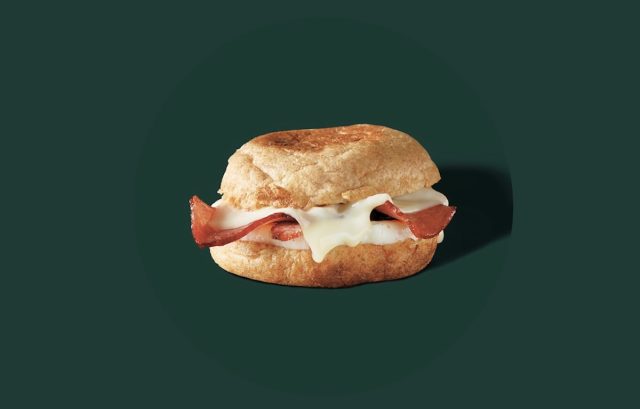 The Starbucks Turkey Bacon, Cheddar, and Egg White Sandwich is 230 calories and contains 17g of protein. "I REALLY love this sandwich," one customer said. "I've been ordering it since college when I was trying to lose weight and now it's still my go to. It's gotten to the point where my obsession is a little expensive, so I've tried many many times to replicate it at home." Chick-fil-A Cool Wrap
Chick-fil-A knows what it's doing with these high-protein options—the Chick-fil-A Cool Wrap is 660 calories and contains 43g of protein. Customers say it's one of the best options for a healthy fast food lunch. "I've had this a couple of times in the last several weeks and I have to admit, it's delicious and filling," one fan shared. "The wrap is created with a very generous serving of good quality, dark green, spinach lettuce. And a good amount of chicken. It can be just a touch on the dry side without dressing but personally that does not bother me. Lastly, the wrap itself is very tasty and not too starchy tasting, pretty fluffy actually." RELATED: I Tried the 7 Healthiest Fast-Food Meals—Here's What I'll Actually Order Again Chipotle Burrito Bowl
The Chipotle Burrito Bowl made with chicken, white rice, black beans, and guacamole is 750 calories and contains 46g of protein. "Bowls literally hold more food than the torillas for the same prices," one customer said. "I prefer the burrito, but always get the bowl. Bowl fills me up perfectly without the extra 300 calories from the wrap," another shared. Burger King Impossible Burger
The Burger King Impossible Whopper vegan burger is 630 calories and contains 28g of protein, and fans say it tastes almost too good to be true. "I am a vegetarian and I get the Impossible Whopper a lot. Sometimes I feel like they accidentally switched out my fake meat with real meat because it tastes 1:1." one Redditor said. Wendy's Grilled Chicken Cobb Salad
Wendy's Grilled Chicken Cobb Salad is a protein powerhouse with 36g of protein and 420 calories. The fan-favorite salad is made fresh daily with lettuce, grilled chicken, diced tomatoes, shredded cheddar cheese, chopped eggs, applewood smoked bacon, crispy fried onions, and ranch dressing. The post 6 Best High-Protein Fast-Food Dishes appeared first on Eat This Not That. Медиа: | ↑ |
Being confident in your own skin is key to feeling good year-round, but especially in the summer months when warmer weather calls for wearing lighter clothing. If you're stuck in a rut and want to make long-term changes that will benefit your health, just a few simple food swaps can make a significant impact on how you look and just as importantly, how you feel. "Healthy swaps can really boost your nutrition intake by providing more vitamins, minerals, fiber, healthy fats and protein," says registered dietitian Julia Zumpano, RD, LD, via the Cleveland Clinic. "Not to mention it can often lead to lower calorie intake." Getting fit doesn't mean following a punishing regime where you're always deprived and miserable—here are 7 swaps that will have you feeling amazing in no time. Swap Chips for Crudite
Crunchy snacks don't have to be unhealthy—just swap out chips for crisp vegetables."This is great if you need something crunchy to snack on," registered dietitian Dana Purcell, RD, tells Hartford Healthcare. "For added flavor, sprinkle fresh veggies with salt and pepper or dip them in hummus." Swap Sour Cream For Greek Yogurt
Swap out your sour cream with gut-friendly Greek yogurt. Plain low-fat Greek yogurt has the same tartness and creamy consistency of sour cream with half the calories and fat. And the two foods taste almost identical," says dietician Natalie Rizzo via TODAY. "Top your tacos, quesadilla or baked potato with plain Greek yogurt, and you won't even notice the difference." Swap Half-n-Half For Coconut Cream
Swapping half-n-half for coconut cream is a great way to go dairy-free. "If you're trying to cut back on saturated fat, consider light coconut milk or cream or even whole milk or whole milk yogurt instead of heavy cream or half-and-half depending on the recipe," Zumpano says. RELATED: 14 Simple Food Swaps That Will Instantly Improve Your Diet Swap Salt For Seaweed
Replacing table salt with nori is a great way to get flavor without too much sodium. "Most Americans eat more sodium than recommended," Cara Harbstreet, registered dietitian and owner of Street Smart Nutrition, tells TODAY. "Swapping the salt shaker for nori flakes (dried seaweed) or furikake (Japanese-style rice seasoning) infuses a savory, umami flavor into each bite without the high sodium," she adds. Swap Potato With Cauliflower
Mashed cauliflower is a delicious alternative to mashed potatoes. "Cauliflower is a great source of vitamin C, which helps boost immunity, aids in the production of red blood cells and is essential for DNA repair," Zumpano says. "Cauliflower also provides a great source of vitamin K, which is essential for heart and bone health." Swap Regular Flour For Almond Flour
Swap out regular flour for almond flour, experts recommend. "One of my favorite substitutions when baking and cooking is using almond flour instead of refined white flour," registered dietitian Malina Malkanite tells TODAY. "Almond flour offers a slightly sweet, mild flavor and boosts the protein, fiber, and micronutrient content of everything from muffins, pancakes and quick bread to fritters and breaded fish." RELATED: 11 Easy Food Swaps That Cut Hundreds of Calories Instantly Swap Regular Pasta for Veggie Pasta
You don't have to give up pasta to get fit—just swap them out for spiralized vegetables. "Bean-based noodles are a great option, which can really pack on the fiber and protein and keeping you fuller longer; whereas spiralized veggies tend not to be as filling as traditional pasta," Zumpano says. "Keep in mind, bean-based pasta provides more carbs and calories than spiralized veggies, so still practice portion control." The post 7 Ways to Get Your Body Summer-Ready With Simple Swaps appeared first on Eat This Not That. Медиа: | ↑ |
